Blogs
Integrating Wellness into Time Management: Mindful Scheduling & Analytics
Introduction
In today’s fast-paced digital world, productivity is often measured by how much we can achieve in a short amount of time. But as burnout rates rise and work-life boundaries blur, organizations are realizing that true productivity comes from balance — not overwork.
Integrating wellness into time management is becoming a modern necessity. Companies are now focusing on mindful scheduling, work-life balance, and data-driven wellness analytics to create happier, healthier, and more productive teams.
This is where Clock Session steps in — offering a smart, human-centric way to manage time while prioritizing well-being.
- The Connection Between Time Management and Wellness
Effective time management isn’t just about efficiency; it’s about mental clarity and balance. When employees manage their time mindfully, they’re less likely to experience stress, fatigue, or burnout.
Traditional time tracking tools focused solely on productivity metrics. However, in 2025, the focus is shifting toward wellness-oriented time analytics — understanding not just how much time is spent, but how it affects the person spending it.
For example, if data shows an employee consistently works long hours, Clock Session can identify this pattern and suggest adjustments to restore balance, preventing exhaustion before it happens.
- What Is Mindful Scheduling?
Mindful scheduling is the practice of planning your day with awareness and intention — ensuring that every hour is aligned with productivity and personal well-being.
It means building schedules that include:
- Regular breaks for rest and focus reset
- Buffer time between meetings
- Work hours aligned with individual energy peaks
- Space for mindfulness activities or quick walks
By using analytics to track productivity patterns, tools like Clock Session help teams design mindful routines that reduce stress while maintaining output.
- How Clock Session Supports Mindful Scheduling
Clock Session goes beyond traditional time tracking by promoting a wellness-driven approach to work.
Here’s how it helps users stay mindful:
✅ Smart Alerts – Reminders to take breaks after long work sessions.
✅ Focus Time Analytics – Insights into when employees are most productive.
✅ Custom Scheduling – Flexibility to create time blocks for focused work, rest, and creative thinking.
✅ Workload Balancing – Automatic notifications when employees are overloaded.
These features ensure that workdays are structured around balance, not burnout.
- The Role of Analytics in Promoting Workplace Wellness
Data has become a powerful ally in workplace well-being. With AI-driven insights, Clock Session analyzes patterns that reflect more than just performance — it reflects how people feel.
For example:
- Activity heatmaps show when employees work most efficiently.
- Fatigue indicators analyze patterns of long work sessions without breaks.
- Wellness trend reports help HR teams identify potential burnout risks early.
By combining data and empathy, Clock Session empowers leaders to make human-centered decisions, ensuring teams remain energized and motivated.
- Benefits of Integrating Wellness into Time Management
Bringing wellness into the core of time management creates ripple effects across the organization:
🌱 Higher Productivity
Employees who rest well and work mindfully are more focused and efficient.
❤️ Better Mental Health
Encouraging balance reduces anxiety, stress, and burnout rates.
🤝 Improved Team Morale
When people feel cared for, collaboration and engagement naturally improve.
🔍 Enhanced Decision-Making
Analytics-backed insights help employers design healthier schedules and work structures.
💡 Sustainable Performance
Mindful scheduling helps maintain long-term performance rather than short-term output spikes.
Clock Session aligns these benefits with a technology-first approach — merging wellness and work seamlessly.
- Building a Culture of Balance with Clock Session
Wellness-driven time management is not a one-time initiative — it’s a cultural shift.
Clock Session encourages organizations to:
- Embrace flexible working hours
- Promote regular mental health breaks
- Encourage self-assessment of productivity and fatigue
- Recognize achievements without overworking employees
Through intuitive dashboards, employees can visualize their own work habits — helping them self-regulate and find their ideal rhythm. Managers, on the other hand, gain insight into team workloads and can adjust schedules proactively.
This creates a healthy loop of transparency and trust, where both sides work toward shared balance.
- How AI Is Redefining Mindful Time Management
AI is playing a transformative role in connecting wellness with productivity.
Clock Session uses AI-driven analytics to monitor trends such as:
- When stress levels might rise based on workload intensity
- How often employees skip breaks
- Optimal timeframes for high-concentration tasks
The system then offers personalized recommendations, such as scheduling lighter tasks after long meetings or suggesting short mindfulness breaks.
This proactive wellness management ensures that employees stay mentally and physically aligned — turning data into well-being.
- The Future of Wellness and Time Management
In the future, workplace success will be measured not just by deadlines met, but by the health and happiness of those achieving them.
As hybrid and remote work continue to evolve, time tracking tools will become wellness companions — monitoring not just time, but energy, focus, and mood.
Clock Session is leading this transformation by combining AI, analytics, and empathy to design the next era of work-life balance. It’s not just a time tracking app — it’s a step toward mindful productivity and sustainable success.
Conclusion
Integrating wellness into time management is no longer a luxury — it’s a necessity for organizations that want to thrive in the modern era.
By combining mindful scheduling with data-driven insights, companies can create workplaces that respect both time and well-being.
Clock Session is built on this philosophy — empowering employees to work smarter, rest better, and grow stronger. Because when wellness and time align, productivity naturally follows.


